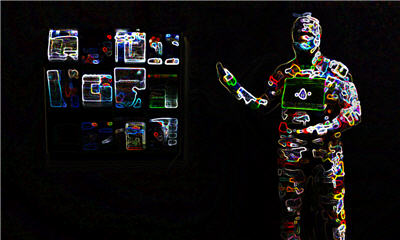The Rise of Smart, Personalized Diagnostic Skin Care Tools
Computer, computer on the wall. Who is the fairest of them all?
Last year saw an explosion of smart, personalized beauty-based assistive technologies led by L’Oréal’s Make-up Genius app. Other smart, beauty-based assistive technologies were the Plum Perfect app (similar to L’Oreal’s Genius app), Sephora’s Skin Care IQ (a diagnostic tool that identifies the right skin care for each consumer), Oku (an at-home device and app that analyses skin condition) and Klara (an app that sends pictures of your skin to dermatologists).
Rapidly building on this surge of beauty-based, personalized technology is the development of new smart, personalized skin care diagnostic tools, forecast to be a leading consumer skin care trend in the coming years says Euromonitor International, an independent provider of global strategic market research.
There’s an App for That

Mobile devices will know more about users, their preferences, and the environment than ever before
Wearable Technology by Keoni Cabral, CC BY 2.0
Fitbit is a family of smart devices and mobile apps that track every part of your day, from the specific activities and exercises you’ve done and the food you ate to how much you slept. Using all this data, Fitbit devices give you specific recommendations to improve your eating habits and physical fitness routines.
“I think that they’ll eventually develop an app that’s kind of like a FitBit for your skin,” says Marla Malcolm Beck, an ‘Entrepreneur-in-Residence’ at Harvard Business School. “It will tell you everything you need to know about your skin that day: the water levels, collagen levels, and on and on. Because, your skin is different from day to day.”
Ms. Beck foresees a time when such smart technology will plug into our smart home and work environments, customizing and tailoring temperature, humidity, and sunlight. Further, these personalized sensing technologies could easily design our skin care products and routines. Says Ms. Beck, “the app [could] be hooked up to a 3-D printer that’s equipped with different skin-care ingredient cartridges. It will be able to cocktail products for you and then print them, so every day you have exactly what you need for your face.”
Such smart devices could soon do more than just make us prettier – with recent advances in sensor technology and data analytics, “mobile devices will [soon] know more about users, their preferences, and the environment than ever before,” says Mckinsey & Company in their recent 2012 report ‘A New Era of Personalized Computing.’ Such advanced sensor and data analytics power could, for example, allow a smart device to check your calendar, ‘notice’ an important upcoming business call, and, if you’re out in the city, automatically suggest a nearby coffee shop, one that that the coffee shop’s real-time internal sensors has indicated is quiet. That’s ‘smart’ off the charts.
Says global market insight agency Mintel, it is the consumers’ increased desire to save both time and money with custom tailored recommendations and solutions that is ultimately driving this trend across all industries.
